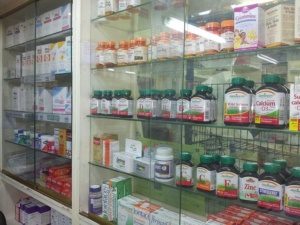Finding the Perfect Nutritionist: A Step-by-Step Guide
Changing your diet can positively impact managing endometriosis symptoms like inflammation, pain, and the growth of endometriosis lesions. However, if your dietary habits significantly differ from the recommended endometriosis diet, seeking guidance from a nutritionist is essential to avoid potential health issues caused by malnutrition or exacerbating your symptoms.
This becomes even more crucial if you are considering dietary shifts such as transitioning to a vegetarian or vegan diet (you can learn more about why here) or adopting a gluten-free or reduced-gluten regimen. In such cases, professional guidance is vital for your safety and well-being. The same applies if you want to try the low FODMAP diet or have specific intolerances or allergies. But how can you find the right nutritionist to assist you on this journey?
Anyone Can Call Themselves a Nutritionist
The title “nutritionist” is not legally protected in Germany, meaning individuals using it may not necessarily have formal medical training. Anyone who claims that french fries with mayo are healthy or profits from selling “health-promoting products” like dietary supplements can call themselves a “nutritionist.” Conversely, some individuals may have legitimate education or qualifications in the field.
This lack of regulation can make it challenging to find a trustworthy nutritionist. Even some medical professionals supplement their income by selling nutritional products, potentially impacting the neutrality of their advice. So, how can you identify a nutritionist you can rely on?
How to Determine the Reputation of a Nutritionist
Distinguishing between a well-trained nutritionist and a sales consultant can sometimes be challenging, as even medical professionals may sell products alongside their expert advice. A reputable nutritionist may recommend products but refrain from selling these products directly. A trusted nutritionist acts primarily as a consultant, not a salesperson, and does not steer clients towards specific products from “affiliates” or “colleagues.” If, for instance, they direct you to a particular store to purchase a product they coincidentally stock, it might indicate a commission-based arrangement, warranting caution.
Here are a few criteria to assess whether the focus is on product sales or knowledge transfer:
- Does the consultant engage in product sales?
- Does the consultant possess a scientific or medical education, such as accreditation from the German Medical Association?
- Is the consultant a qualified nutritional physician, oecotrophologist, or dietician?
- Are the consultation costs covered fully or partially by statutory health insurance (in Germany) as part of prevention programs or with a doctor’s certificate of necessity?
- Is the nutritionist recognized by statutory health insurance?
It is important to note that not all criteria must align simultaneously. Some nutritionists may not work with statutory health insurance companies yet remain highly qualified to assist you. When in doubt, consider scheduling a trial appointment to determine whether you feel comfortable with them and well-supported by them.
Specialization Matters
Not all nutritionists possess expertise in the specific dietary considerations for endometriosis. However, a qualified nutritionist is well-equipped to guide various issues, including irritable bowel syndrome, bloating, histamine intolerance, vegetarian or vegan diets, and other concerns associated with endometriosis. They can offer ongoing support for dietary changes tailored to your needs. Contacting the nutritionist in advance and explaining your concerns is a good idea, allowing them to prepare effectively for your consultation.
While it may require some travel to reach the nearest qualified nutrition counseling center, it is the most appropriate and sensible approach to receiving practical help. Just as you visit an endometriosis center for specialized care rather than a general internist for “abdominal pain,” seeking out a nutritionist with the right expertise can make a significant difference.
Finding the Right Nutritionist
To locate a qualified nutritionist in your area, you can visit the websites of the following professional associations:
- Professional Association Oecotrophology (VDOE)
- Federal Association of German Nutrition Physicians e.V. (BDEM)
- The German Society of Qualified Nutrition Therapists and Nutritionists e.V. (QUETHEB)
- Association for Nutrition and Dietetics e.V. (VFED)
- Association of Dietitians (VDD)
Once you have identified potential nutritionists, it is essential to investigate the services offered by their practice. Do they provide individual appointments, group sessions, or both? While group sessions might initially seem intimidating, they can be beneficial as they allow you to connect with others facing similar challenges and learn from their experiences, setbacks, and successes. Individual appointments also have their advantages. The key is to ensure you feel comfortable and well-supported and that the advice you receive is based on scientific evidence rather than marketing strategies.
Active Participation in Nutritional Counseling
Nutritional counseling can only be truly successful if you actively participate, engage with the process, ask questions, experiment with dietary changes at home, and approach it with motivation. While the nutritionist can guide you on how it works, the implementation is up to you.
Individual, personalized, and professionally sound nutritional advice cannot be replaced by online communities or well-intentioned advice from social media. It is essential not to place trust in individuals who aim to sell you products, such as vitamin tablets or nutritional supplements, in the guise of offering online or offline advice. You can find more about dietary supplements and endometriosis here.
For long-term success, ongoing nutritional counseling is crucial. In the initial stages, weekly consultations are recommended, transitioning to monthly or quarterly as you become more comfortable with your new diet. The objective is to equip you with the necessary knowledge and understanding and guide you until you can confidently maintain your new dietary habits.
Continuous nutritional consultation serves not only to prevent malnutrition and associated health risks, identify any lapses or setbacks and gently steer you back on course.
Remember, your body is unique, and it is best to entrust it to medical professionals when it comes to health matters. Just as you take your car to a mechanic for repairs and not to a salesperson, seek guidance from healthcare experts for your well-being. We wish you every success on your journey!
- Finding the Perfect Nutritionist: A Step-by-Step Guide - 5. October 2023
- Does Monk’s Pepper Help with Endometriosis? - 5. October 2023
- A Brief Overview of Dietary Fats - 29. September 2023





